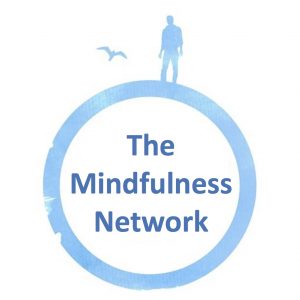
written by Bridgette O’Neill
Feeling the effects of a busy period of work, I notice a yearning to be on retreat. What is it that I’m longing for? What does a retreat offer me? Respite from my to-do list? Yes certainly that! No need to shop, plan meals, cook, or even think how to spend a day. Every day tasks and activities can be let go. But can’t a holiday offer me this? To a degree, yes, although a certain busyness can come with holidays, such as choosing where to eat or which places to visit.
For me, a retreat provides space where I can immerse myself into the structure and rhythm of the programme, trusting that my needs for food and physical comfort will be met by the retreat environment. All I have to do is to simply be with my experience, to drop more deeply into being present, to witness the workings of my mind and body in the formal practices of meditation and across the whole day in the company of my fellow retreatants. This isn’t necessarily easy. Struggles, joys and laughter arise along the way, including familiar patterns and tendencies that I’d rather not see. This rare opportunity – to come into greater connection with myself, and my environment, to gently look into what it means to be human, to have a body, mind and heart – enables a sensitivity and understanding to develop that support me in my everyday life, attuning me to the effects of a busy work period and helping me negotiate it.
I’ve been the retreat lead for the Mindfulness Network for almost a year now. In this piece, I describe some of what’s been involved and also share with you what our intentions and vision are for retreats in the future.
In their recent book, Daniel Goleman and Richie Davidson describe a range of different benefits from retreat practice compared to practising at home. Knowing these benefits from the inside for myself, I am keen to make the retreat experience available to as broad a range of people as possible, in keeping with the general vision of the Mindfulness Network. Achieving this involves giving careful consideration to possible barriers people may experience and also to making our retreats appealing and relevant.
Venue and Cost
Taking on this new role has led to me becoming engaged in a search for affordable venues. The search is ongoing so please do get in touch at retreats@mindfulness-network.org if you’re aware of any suitable venues. We are pleased that in 2018, we will offer retreats in the West Country, Yorkshire, the South East, France, as well as at beautiful Trigonos in North Wales. I hope that this broader range of venues will increase accessibility.
We’re also keen to bring down the financial cost of at least some of our retreats by:
- setting up a retreat bursary fund to make it possible for those on very limited incomes to attend retreats. This is an aspiration for the long-term.
- simplifying the cost by offering one price rather than two separate costs for teaching and accommodation.
- offering several lower cost retreats in 2018 at venues that are simple, rather than luxurious (e.g. shared bathrooms rather than ensuite).
Going on retreat without leaving home
The idea of going on retreat without leaving home may sound odd, but my introduction to retreats was through non-residential weekends with the Brighton Shambhala Meditation group. These weekends gave me an opportunity to taste the benefits of longer periods of practice and inspired me to go on longer residential retreats. As well as being an excellent introduction to retreats, these kinds of weekends can be particularly valuable for people with caring commitments who struggle to be away from home overnight. With this in mind, we are piloting a city retreat in London at the end of October 2017.
Supporting teachers: the UK listing is not just another tick box!
There is agreement across the major mindfulness teacher training institutions that personal practice and retreat experience are central in learning to teach mindfulness. A blog on the Oxford Mindfulness Centre website discusses this. The UK Network’s Good Practice Guidelines for Mindfulness-based Teachers also requires teachers to attend an annual retreat.
However, I don’t believe that going on retreat could ever be just a tick box exercise, even if the motivation to attend a retreat may be linked to being listed with the UK Network or completing teacher training. Through my work as a mindfulness-based teacher trainer, I have seen that going on retreat is often a turning point for people learning to teach. On their return from a retreat, trainees often express this with comments such as, “now I get it” and “I’m so pleased I went.” Teaching alongside these trainees, I feel their increased embodiment and confidence in the teaching role.
Retreats for Mindfulness Trainees
A particular focus in this last year has been developing retreats that are specifically tailored to people training to teach MBSR, MBCT and other mindfulness-based programmes. I’ve been working with colleagues from Exeter, Oxford and Bangor Universities who are trained in leading retreats to consider what form of retreats can best support people training to teach. In 2018, we will offer a Level 1 and Level 2 retreat designed to meet the retreat needs of those on Part 1 and Part 2 of CMRP’s Teacher Training Pathway and Master’s Teaching 1 and Teaching 2 modules. These retreats will also be suitable for trainees from other training organisations and for more experienced teachers who want to reconnect to the core underpinnings to mindfulness as it is taught in the eight-week course.
The process of designing these retreats has already been an incredibly rich process and it feels like we’re just at the beginning of something new. Our thinking about retreats for teachers in training is also informing our other five and seven-day silent retreats.
We’re really keen to hear about people’s experiences of these retreats. Please let us know. I would also be really pleased if someone felt inspired to do some qualitative research in this area, perhaps for a Masters’ dissertation.
As I write, this quote from Pema Chodron comes to mind ‘the truth sinks in like rain into very hard earth. The rain is very gentle, and we soften up slowly at our own speed.’ My hope is that our silent retreats can offer plenty of rain as learning reveals itself.
And then what…
For some of us, five and seven-day silent retreats may now be very familiar. Perhaps we’ve done many of them and, although every one is a rich new experience, there may be an increased risk of lack of beginners’ mind or even autopilot when the form of retreat is very familiar.
So how do we stay awake to our lives? How do we keep learning and developing personally and in our teaching? With these questions in mind, our retreat programme for 2018 offers opportunities to look into different aspects of experience, including: a retreat focusing on interpersonal mindfulness, relevant to our personal relationships and to inquiry in teaching and supervising; a retreat with a focus on explicit compassion practices; and another on how to keep going with practice over the long term. I’m also delighted that David Rynick and Melissa Blacker will be returning to teach a retreat influenced by their years of both MBSR and Zen practice, offering, as the retreat title suggests, the possibility of Waking Up in Every Moment. Not all of these retreats are currently listed on our website, so please check back from time to time, since new retreats are always being added to our programme.
As you can see, it’s been a busy and interesting year. Reflecting on it, I feel a huge sense of appreciation, richness, excitement and a yearning once again to be on retreat! Do you have this yearning too, or the beginnings of an interest? If so, please do look at our programme of retreats. I hope there’s something there that may inspire and support you at this point in your journey with mindfulness.




